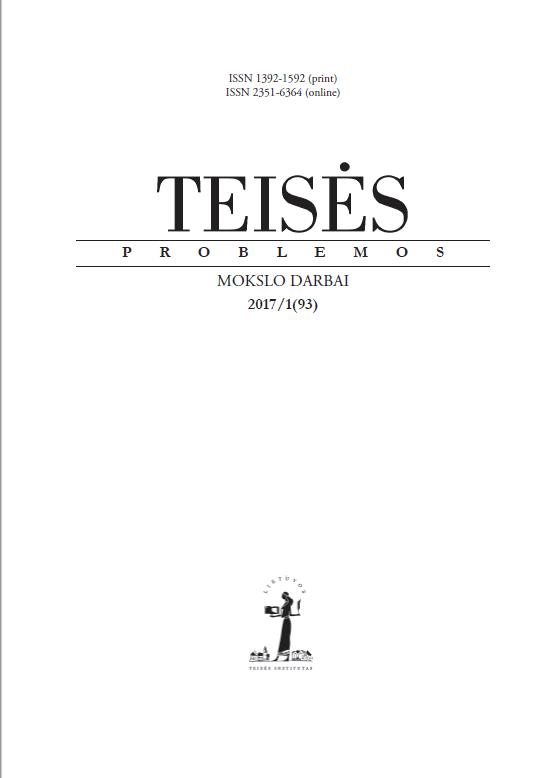Europos Sąjungos Teisingumo Teismo vaidmuo plėtojant abipusio pripažinimo principą: baudžiamosios justicijos perspektyva
Court of Justice of the European Union – Developer of Mutual Recognition Principle: Criminal Justice Perspective
Author(s): Justina DešriūtėSubject(s): Law, Constitution, Jurisprudence, Criminal Law, EU-Legislation
Published by: Lietuvos teisės institutas
Summary/Abstract: Article analyses the role of the Court of Justice of the European Union (hereinafter – CJEU or the Court) during development of mutual recognition principle in criminal justice. Firstly, it is being observed that CJEU has not given an explicit definition regarding mutual recognition. However, the Court has acknowledged the principle as the foundation of criminal cooperation between Member states in European Union. In its rulings CJEU dealt with collisions between mutual recognition and other main principles of law such as non-discrimination, legality, proportionality. the Court with the use of “mutual borrowing“ has successfully incorporated mutual recognition into the European Union legal system and deepened the notion of it being as high as a constitutional level principle.The research has clearly demonstrated that CJEU is an active defender of mutual trust which is the basis of mutual recognition principle. the Court has established an unambiguous rule that Member state cannot follow any formal procedure during recognition of a decision. Besides this, CJEU has been straightforward about Member states having to fully trust one another and recognize a decision despite that the outcome according to its national legislation would be different. On the other hand, recent position of the Court has slightly softened. According to CJEU, mutual trust can be contested by exceptional circumstances, especially by those, related to the protection of human rights. What is more, the Court proclaims the importance of mutual trust not only by explaining legal provisions related to principle of mutual recognition. CJEU has become a convenient platform for Member states to exchange their views regarding mutual recognition and to make each others legal systems more familiar as well.Cooperation between Member states during criminal proceedings goes hand in hand with the protection of human rights. the Court, as an interpreter of related legal provisions, plays an important role in this matter as human rights has not been a priority while creating an effective system of international cooperation in criminal cases. Nonetheless, CJEU‘s position regarding protection of human rights remains quite controversial as it is not clear yet what is the relationship between the Court and the Court of Human Rights. the importance of this area is supposed to grow as European Union through new legislation gradually strengthens the rights of suspects during criminal cooperation which means that the scope for CJEU‘s interpretations expands. In addition, the Court directly influences aspects of reintegration which are of the utmost importance ensuring proper protection of the interests of a convict.
Journal: Teisės problemos
- Issue Year: 2017
- Issue No: 93 (1)
- Page Range: 53-77
- Page Count: 25
- Language: Lithuanian

